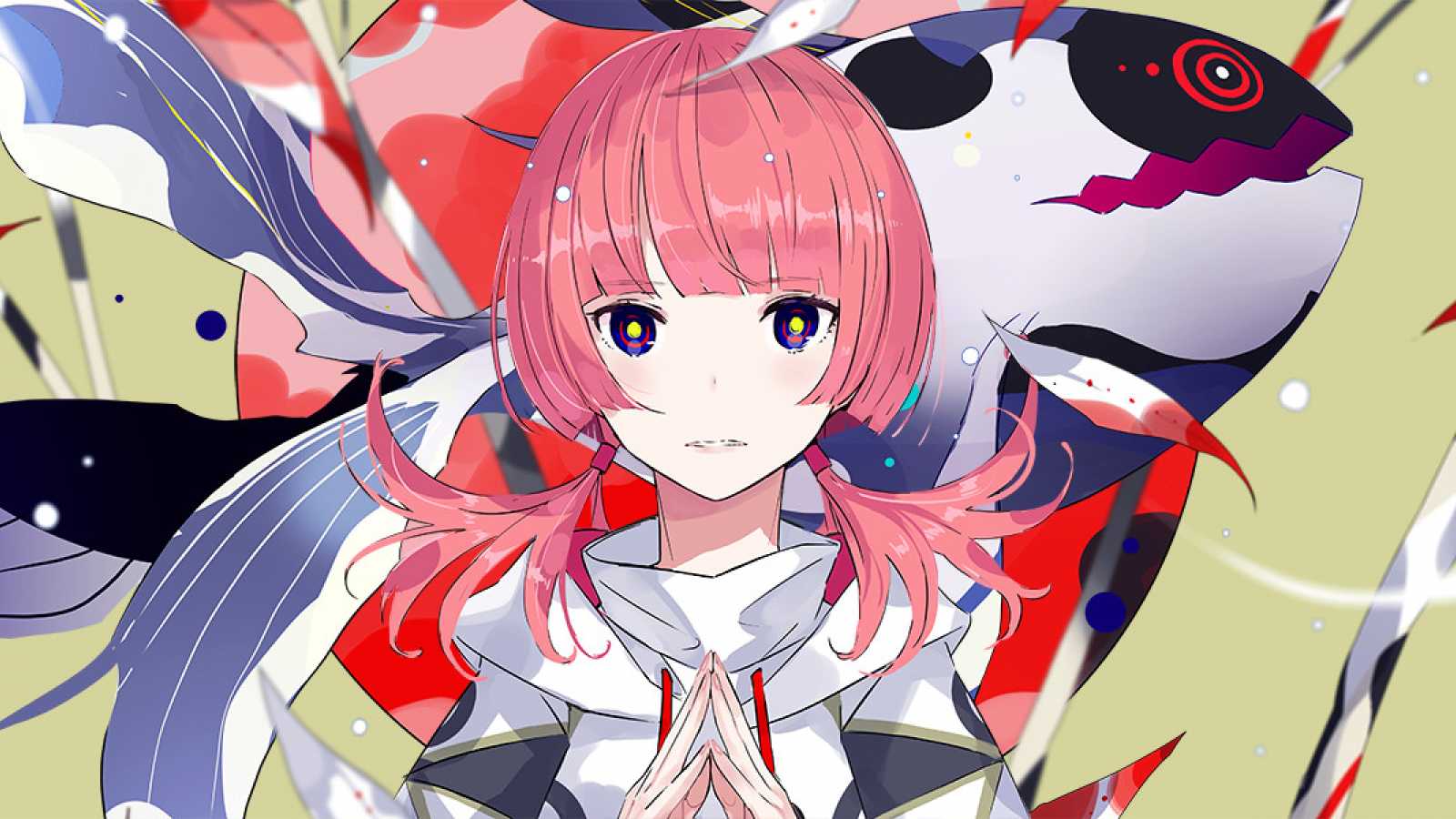Otsuka Ai was born in Osaka on September 9, 1982 and alike many children in Japan, was encouraged to learn an instrument from an early age. Consequently, Otsuka began to learn to play the piano from the age of four and successfully mastered the instrument in her teenage years.
In 1997, Otsuka founded the girl group Himawari with fellow friend, Nishida Mayumi. This was the beginning of her true dedication to music, as Otsuka began to compose her own material and penned lyrics to try and gain some recognition in the music industry.
Despite this group existing for several years, in 2001, Nishida opted to leave the group. This minor setback failed to phase Otsuka Ai as she sent several demo tapes to various record labels in an attempt to get signed during 2003. Luckily for her, the prominent avex network noticed Otsuka's talent and decided to offer her a contract.
Otsuka Ai released her first single Momo hanabira in September of that year. Despite only achieving number 24 on the Oricon, the single remained in the chart for 21 weeks, which is quite a notable feat seeing as it peaked at a reasonably low position.
Her following single, the infamous Sakuranbo, was released in December 2003. The release is widely regarded as Otsuka's breakthrough into the pop industry as it eventually peaked at number five on the Oricon. Becoming the twelfth best selling single of 2004, Sakuranbo remained in the Top 200 for 101 weeks and the encore press issued in 2005 peaked at number four.
Her following single, Amaenbo also achieved a record of its own right. Despite peaking at number six, the single remained a mere spot behind Sakuranbo, making Otsuka the first female solo artist to have two singles in the Top 10 during the same week. Otsuka held this record until 2005, when Koda Kumi shattered her achievement by having three singles in the Top 10 during one week.
Otsuka Ai released her debut album LOVE PUNCH in late March and it peaked at number three on the charts. Remaining in the chart for 98 weeks and selling 519,300 units in 2004, it became the twentieth best selling album of that year. However, due to sales of 159,025 copies in 2005, the album also featured in the best selling album list of that year.
Her following single Happy Days displayed the musical diversity which Otsuka has become known for. With the title track using the genre of rock/pop displayed one end of the spectrum, whilst the B-side, Hoshikuzu, clearly displayed her skills on the piano with an emotional ballad.
Following the release of two further singles, Otsuka released her second studio album, LOVE JAM. Despite holding the lowest sales of any of her subsequent albums, the release peaked at number one on the Oricon. Selling an estimated 414,513 copies, the album became the number 30 best selling album of 2005.
After the album's release, there was one re-cut single taken from LOVE JAM. Whilst the album featured the song Kuroge wagyu joshio tan yaki 735yen, the single was titled Kuroge wagyu joshio tan yaki 680yen and differed in terms of vocal and musical arrangement. Even though the songs share some similarities, it is widely accepted that the version featured on the album adopts a more "tender" approach, while the single is considered as "aggressive."
Otsuka's first original single after LOVE JAM was her first to occupy the number one spot on the Oricon after one week of sales. SMILY/Biidama proved to be one of her most popular singles, selling 308,338 copies, making it the number 26 best selling single of 2005. Subsequent sales have led this single to become Otsuka's third highest single in her career so far following Sakuranbo and Planetarium.
In June 2005, Otsuka Ai made her acting debut in the TBS drama, "Tokyo Friends." Unlike various other dramas, "Tokyo Friends" was never aired on television and was released via a three DVD set. Despite being a stereotypical Japanese drama and never airing on television, the DVD release did surprisingly well, probably thanks to the performance being Otsuka's acting debut.
Her following single release, Neko ni Fuusen proved to be her lowest selling single of 2005, selling a mere 111,324 copies to make it the number 92 best selling single of 2005. The low sales surrounding this release have made this Otsuka's third lowest selling single (that is not still in the charts) since her debut.
Her last single of 2005, Planetarium, proved to be far more successful than its predecessor. Used as an insert song for the popular live-action drama, "Hana yori dango," the single peaked at number 1 on the Oricon. Selling 215,114 copies in 2005 ensured the single became the number 41 best selling single of 2005. The song, which was always available through iTunes Japan's music store, became the 12th most downloaded song of 2006.
Otsuka ended the year with her third studio album, LOVE COOK. As her best selling album to date, with over 800,000 copies sold, on March 9, 2006, the album received an award at the Japan Gold Disc Awards for being one of the best albums of 2005.
The following year started off positively for Otsuka. Her first single of the year, Frienger was released in April. The single title is a portmanteau of the words "friend" and "ranger" and debuted at number 2 on the Oricon.
Shortly after the release of Frienger, Otsuka resumed her role as Iwatasuki Rei for the film adaptation of the drama "Tokyo Friends." Premiering in Japanese cinemas on August 12, 2006, the story continued from where the drama has concluded. Her following single, Yumekui was used as the opening theme for the film and the B-side, tears was also featured in the movie's soundtrack.
Her following single Renai shashin was used as the theme song for the movie "Tada, kimi wo aishiteru." Although the movie was originally titled "Heavenly Forest," the director of the movie, Shinjo Takehiko decided to change the title once hearing the song to a phrase taken from the lyrics. Being one of Otsuka's most emotionally powerful ballads led the single to peak at number two on the Oricon.
2007 saw Otsuka releasing the rather unusually titled Chu-Lip, which is a play on the Japanese pronunciation of the English for "tulip". With "chu" meaning "kiss" in Japanese, the single cover clearly reflects the humour behind the name. Recognised as one of Ai's more "unusual" singles thanks to its promotional video, the song was used as the theme song for the TBS drama "Kirakira kenshuii," which starred Konishi Manami and Wentz Eiji of WaT.
Following in the trend of several artists under the avex company, Otsuka released her first compilation album on March 28th. Ai am Best peaked at number one, selling 64,396 copies on its first day. Otsuka then commenced on her Ai am Best Tour, which saw performing tracks taken from the album plus others taken from her career.
On April 11th, Otsuka released Love no Theme under the alias of Love-chan. Depicted as white rabbit cartoon drawn by Otsuka, the single was originally titled I canChu, before it was changed to it's current title. The single also featured an exclusive preview of her upcoming single under the penname Love, White Choco.
On July 7th, Otsuka participated at the Live Earth concert held at Makuhari Messe, Tokyo. Performing alongside notable Japanese artists such as Genki Rockets, RIZE, ayaka, AI, abingdon boys school, Cocco and Koda Kumi, the event was available for those outside of Japan via MSN web stream.
PEACH/HEART was released later that month, following the conclusion of her Ai am Best Tour. PEACH was used as the theme for the Fuji Television drama "Hanazakari no kimitachi e" starring Horikita Maki and Oguri Shun. The single peaked at number one on the Oricon and has become one of Otsuka's most recognised songs.
In September, Otsuka released her fourth studio album. LOVE PiECE peaked at number one on the Oricon and managed to achieve the number seven spot on the United World Chart. Arguably, the album saw Otsuka moving away from her usual style to something of that a bit more experimental.
Early November signalled the release of Otsuka's last single of 2007, Pocket. Despite reaching number four on the Oricon, it was her first single to not sell over 100,000 copies and is her lowest selling single since her debut single in 2003. Her second single under the penname Love was released two weeks later. White Choco was a previously unreleased song taken from her Momo no hanabira promotional disc, which was previously titled White Choco.
As for 2008, Otsuka released Rocket Sneaker/OnexTime on May 21st, which peaked at number four on the Oricon.
Blessed with endless energy, charisma and charm, one can be certain that Otsuka Ai will remain at the forefront of the Japanese pop industry for several years to come.




